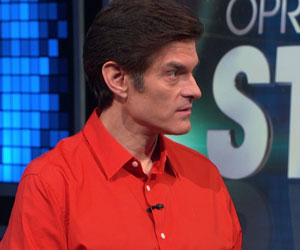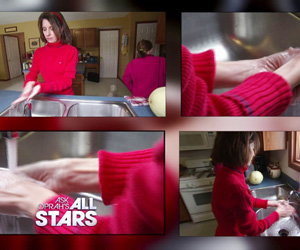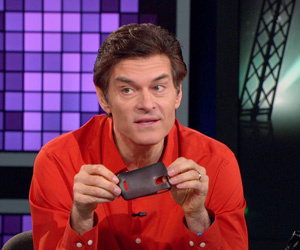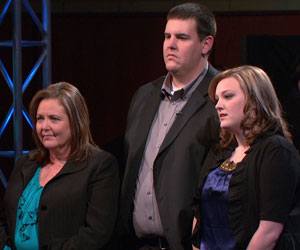What kind of bacteria lurks in my handbag?
Dr. Oz: Let's talk about the reality of where germs can be. This is Gina's purse. This lipstick looks so innocent and so beautiful, but it tested positive for Clostridium perfingens. This is a very toxic bacteria. It's found in your intestinal tract. It sometimes can actually invade into the skin and cause all kinds of devastating things like diarrhea. Not a good guy.
By the way, when you go to the bathroom and you flush the toilet, you aerosolize this big air bomb of stuff. I'm telling you, anything that's uncovered in the bathroom...that's why those lids are on there. If you can do one thing after the show, make sure you close the lid on the toilet because it gets onto items that are around you. So, in your bag, you're carrying this around, I would be careful about it. You can scrape the top of it off. If you put this in the freezer, you will kill the bugs.
Let's go to purse number two, Suzanne. I've got something Suze's really excited about: your credit card. It's been used a lot. She wants to cut it, and I've got a medical reason to. It has something called enterococcus in it. When you have good guy bacteria protecting you, that's fine. But if you've got too much enterococcus, and if it's on your credit card, it gets into the numbers, gets into those digits, and it lives there....that can go to your heart. It can cause infections of some of the major organs in the body.
It's easy to deal with. You just clean it with an alcohol pad. You clean your credit cards off. You don't have to do it every time you go shopping, but once in a while. Remember, they're scooping credit cards through those machines. You've got to assume you're touching the hands of hundreds of people when you get your credit card.
Now, let's go to the last one. Tamara, this is the big one. I'm going through your purse and found your cell phone cover. Now think about this. We are carrying cell phones around all the time. We're putting it in our pockets, touching parts of our body, touching our nose, touching your cell phone, back and forth. And it's a communal item—never share your cell phone with anybody unless you want to share germs with them.
Secondly, if you're going to have something like this, you've got to clean it off once in a while. We looked at yours and found E. coli, which is what comes out in your poop. This is stuff that is actually, unfortunately, a problem for a lot of us. You have good guy E. coli, and you have bad guy E. coli in there. E. coli causes pneumonia. The bacteria, when they're in the right place aren't a big deal for the body because we have natural defense mechanisms. You need to get infected once in a while because it actually helps you build up your immune system. It trains you. No pain, no gain on this stuff either, but you don't want it in the wrong place.
Next: Is being overweight really that bad for you?

















